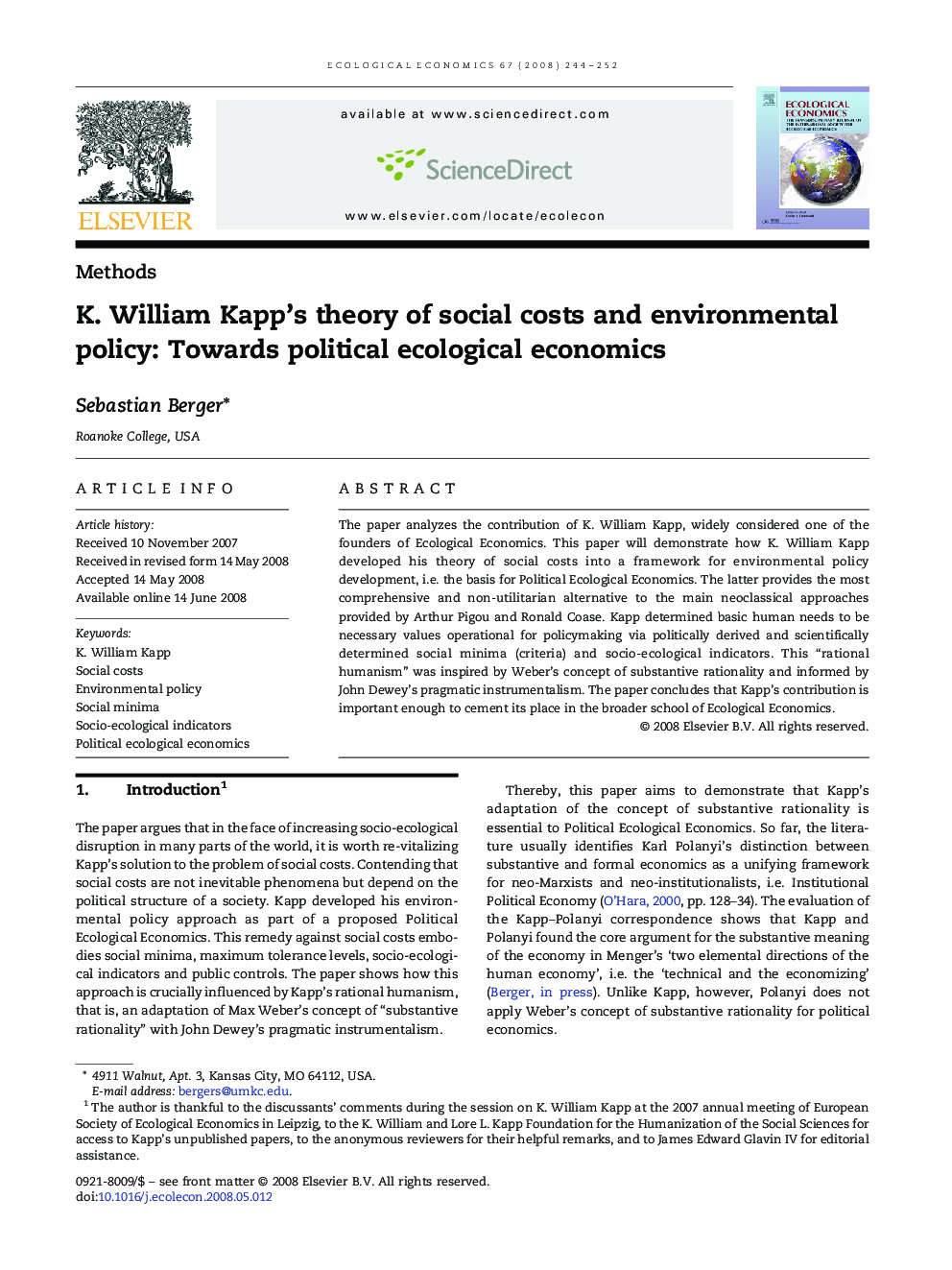| Article ID | Journal | Published Year | Pages | File Type |
|---|---|---|---|---|
| 5051235 | Ecological Economics | 2008 | 9 Pages |
The paper analyzes the contribution of K. William Kapp, widely considered one of the founders of Ecological Economics. This paper will demonstrate how K. William Kapp developed his theory of social costs into a framework for environmental policy development, i.e. the basis for Political Ecological Economics. The latter provides the most comprehensive and non-utilitarian alternative to the main neoclassical approaches provided by Arthur Pigou and Ronald Coase. Kapp determined basic human needs to be necessary values operational for policymaking via politically derived and scientifically determined social minima (criteria) and socio-ecological indicators. This “rational humanism” was inspired by Weber's concept of substantive rationality and informed by John Dewey's pragmatic instrumentalism. The paper concludes that Kapp's contribution is important enough to cement its place in the broader school of Ecological Economics.
